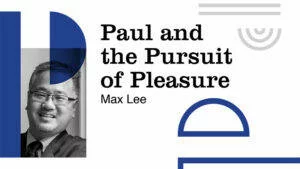“God saw that it was good.”
As reported by Saint Augustine, the Manichees latched onto the peculiarity of this refrain in the opening chapter of Genesis to criticize the received Christian doctrine of creation. Read in a certain light, it seems to suggest that either God didn’t know what he was going to make before he made it, or that he didn’t know what ‘good’ was before he created something.And God said, Let light be made; and light was made (Gen 1:3). The Manichees are not in the habit of finding fault with this, but with what follows: And God saw the light that it was good (Gen 1:4). They say, you see: “So then, God did not know what light was before, or did not know what good was.” Augustine, Gen. Man. 8.13. trans. Edmund Hill (Hyde Park, NY: New City Press, 2002), 47.
Augustine was fairly confident that this was not the inference the author of Genesis was intending his audience to draw from the passage. God was not taken surprise by the goodness of what he made any more than a halfway decent carpenter would be after he produced a work that measured up to his craft. But just what is the author intending to communicate with this little text? What inferences should good readers draw from the hymnic refrain—“and God saw that it was good?”
Augustine’s response was that it teaches us that the finished work of creation brought God satisfaction. But it is also more than this. “From the starting point of God’s appreciation of the goodness of creation,” incoming Henry Fellow Kevin Kinghorn says, “Christians will want to affirm that God intends for us also to recognize the goodness of creation.” The text is not only reporting to us what is true about God, it is also trying to shape us in a certain way, to open our eyes to a way of seeing the world. “But how exactly has God designed the world,” Kinghorn asks, “and designed us, so that we can recognize the created world as good?”
Perceiving the Good
Of course, we don’t see goodness in the same way that we see a book lying on a chair, or a cup of tea spilling on a table. The perception of some state of affairs as good carries with it “normative pressure,” which Kinghorn describes as “the feeling that there are things that we should or ought to do. There’s an enormous difference between (a)“I look at the range of moral concepts we have and try to identify the core moral concern of humans that led us to form these various moral concepts.” recognizing that I have an option to perform some action; and (b) feeling that I really should perform that action. What exactly are we recognizing in these latter cases when we have this experience of normative pressure? From the starting point that God has given us a moral awareness, what exactly has God ensured that we are aware of?”
When Kinghorn joins the 2020–2021 Henry Resident Fellowship in August, his project will be the capstone of a three volume work on moral theory that develops a thorough Christian account of moral normativity. “In A Framework for the Good (Notre Dame, 2016) I explored the meaning and nature of ‘Goodness’, as well as its relationship to the categories ‘Right’ and ‘Wrong’; and in The Nature of Desert Claims (Cambridge, forthcoming) I offered a conceptual analysis of desert, which historically has been seen as the key to understanding justice.” In these previous works, Kinghorn argued that the best explanation of our moral intuitions—what we “see” when we perceive a state of affairs as good, or make value judgments—lies in a natural order created by the God of Christian theism.The Stanford Encyclopedia of Philosophy describes desert claims as follows, “A typical desert claim is a claim to the effect that someone deserves something from someone on some basis. For example, consider the claim that a certain student deserves a high grade from her teacher in virtue of the fact that she did excellent work in the course.” Fred Feldman and Brad Skow, “Desert,” in The Stanford Encyclopedia of Philosophy (Winter 2019 Edition), ed. Edward N. Zalta. “My project as a Henry Fellow is a capstone project in which I look at the range of moral concepts we have and try to identify the core moral concern of humans that led us to form these various moral concepts.”
It’s common for Christian moral philosophers to approach the question of goodness through arguments about whether or not God is needed to account for human morality. These arguments often attempt to show the inability of naturalism to adequately explain our moral concepts and intuitions. Kinghorn’s approach is different. “I do not think we intuitively ‘see’ non-natural properties of, e.g., a person’s ‘right’ or an action’s ‘wrongness’ or ‘obligatoriness.’ Instead, what I think we intuitively “see” within God’s created order are the dynamics of, and opportunities for, perfected relationships—dynamics which we appreciate (cognitively) and at the same time experience (affectively) as normatively pressing upon us.”
Kinghorn’s view on the nature of our moral intuitions lends itself to engagement with disciplines that aren’t the most common conversation partners for Christian theologians and philosophers, such as moral and social psychology. “Over the past few decades a number of studies from social psychologists have shown how people’s moral reactions to situations (that some action was wrong, that some person should be punished, etc.) are influenced by a surprisingly large range of factors,” Kinghorn observed. “These studies offer important insight into—and really, cannot responsibly be ignored by—Christian attempts to explain how God intends for us to recognize goodness and value within his created order.” One facet of Kinghorn’s project will aim to show how engagement with the sciences offers an array of unique—and often neglected—vantage points to discern the goodness of creation.
Nature, the Good, and a Global Virus
The past three months have created a host of new pressures—both normative and otherwise—for Christians to weigh and consider. For some of us, it has also provided a perhaps uncomfortable amount of spare time for such reflection. Kinghorn does not want us to squander it.Any discussion of the goodness of creation will have to give an account of just what it is we are seeing when our moral intuitions identify something as good. “During this pandemic we have been seeing pictures of those in the medical field working frantically and sacrificially for the good of others. There is a certain mental experience that comes with this type of action: it feels different to help others sacrificially than to hoard resources or to sit comfortably aloof. I would encourage us to reflect on the difference between these kinds of feelings. Sacrificial actions, while difficult, nevertheless bring about a feeling of harmony and satisfaction.” Kinghorn acknowledges that there’s a kind of pleasure in acting selfishly, but those pleasures yield diminishing returns, and end in self-destruction. When we read the stories of the men and women who are working on the front lines of the epidemic, sacrificing their safety, health, even their ability to be present with their family, our moral intuitions see what they are doing as good. “These sentiments are God-given prompts to help us see the kinds of experiences we are called to cultivate and ultimately be consumed by, as we become conformed to the likeness of Christ in perfect love.”
The repeated refrain in the opening chapter of Genesis—God saw that it was good—is peculiar. But not because, as the Manichees suggested, God didn’t know what he was doing when he created the world. The affirmation is peculiar, at least in part, because we do not immediately recognize and experience the world as unqualifiedly good. The Christian response to Manicheanism was that the world was created good, and that its goodness has been marred (but not destroyed) by the fall. Both of these claims are necessary affirmations for Christian theology. But any discussion of the goodness of creation will have to give an account of just what it is we are seeing when our moral intuitions identify something as good. And it is this work that Kinghorn will be undertaking as a resident fellow during the 2020–2021 year.
2020–2021 Henry Resident Fellows
 |
Joshua W. Jipp Associate Professor of New Testament, Trinity Evangelical Divinity School Project: “Paul and the Pursuit of Happiness” |
 |
Kevin Kinghorn Professor of Philosophy and Religion, Asbury Theological Seminary Project: “Rethinking Our Moral Intuitions” |
 |
Max Lee Associate Professor of New Testament, North Park Theological Seminary Project: “Natural Desire as a Moral Index of What Is Good” |
 |
Alexander C. Stewart PhD, McMaster Divinity College Project: “Wired for Wonder: Natural Awe in the Sciences and Scriptures” |







Comments
Be the first one to make a comment!